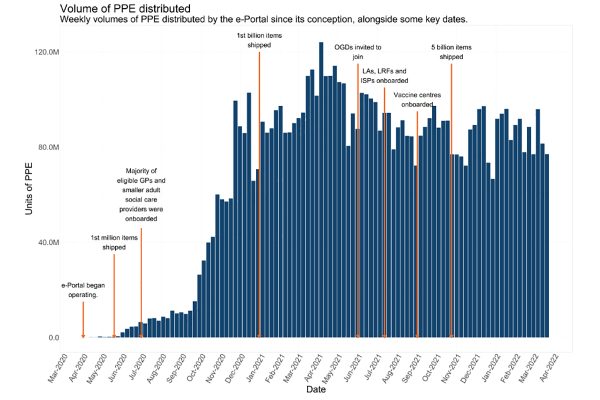The spread of Coronavirus (COVID-19) has completely changed the manner by which people in every country are able to live their lives. As individuals around the world begin to shelter, what does this mean for global commerce trends and how is ecommerce fraud changing during this period? Forter‘s latest report reveals all:
Coronavirus Impact on Fashion & Beauty
- 50-100% INCREASE IN PURCHASE VOLUME: Consumers with more time to fill at home spend on beauty and skincare.
- 30% DECREASE IN PHYSICAL GOODS PURCHASES
It is still early days as non-essential retailers are being forced to close their doors, so data in this category is still being accumulated. That being said, the immediate impacts of Corona are being felt within this industry.
Forter data indicates up to a 30% decrease in physical goods in some geographies for businesses related to the apparel and accessories industry.
Forter data indicates an increase in certain types of physical goods within this category. For instance, shoes and footwear are becoming more popular items among consumers. Retailers holding sales during this period are seeing the power of these promotional periods in attracting buyers. Some apparel and accessories merchants are seeing nearly 3x the normal rate of transactions due to their promos during this time.
As more and more people are being relegated to quarantine, the beauty industry has seen an uptick in consumer buying activity. Forter data indicates that beauty and skincare businesses are seeing between 50-100% increases in overall volume.
As more people are home with time to fill, order volume in this industry is increasing. This may be attributed to the desire for individuals to advance their skincare and beauty routines, or try products that they may not have had ample time to test before.
Apparel and Accessories Ecommerce Fraud Trends to Watch
Within this category, merchants should be aware of:
- Contactless Shipping and Delivery as a potential avenue for fraud
- Promo Abuse
Contactless Shipping and Delivery is when physical goods are delivered to shoppers’ specified address, but there is no interaction between individuals in order to minimize the potential for exposure. Merchants in this category should also prepare for an increase in Buy Online Pickup In Store (BOPIS) as a potential segment to monitor for friendly fraud. Friendly fraud related to BOPIS is likely to occur as purchases made prior to movement restrictions may bring about the inability for customers to actually pickup their orders both because they cannot get to the store and because the store may be closed. Additionally, if shoppers pick something up at the store and then wish to return it, they will be limited for the reasons detailed above.
Merchants should proactively address the issues surrounding Corona and the virus’ potential impact on their business and their policies (including returns policies and promo/coupon policies). By pre-emptively addressing the impacts of the virus on changes to business practices or policies, it is likely that merchants will face less friendly fraud (where good customers aim to take advantage of merchant’s policies for their own gain) and incidences of abuse.
Promo abuse occurs when legitimate customers or fraudsters create new/multiple accounts to receive one-time use promotional codes that they use multiple times, or when shoppers overshare coupon codes in refer-a-friend activities. As merchants aim to draw in more customers during this time, there has been an increase in the offering of promotions or discount codes in order to further entice consumers to their brands. Merchants must ensure that they have proper fraud and abuse protections in place in order to combat a likely significant uptick in promo-related abuse.
Coronavirus Impact on Food, Beverage, and Delivery Services
- 100% INCEASE IN SITE TRAFFIC: Forter data indicates a large increase in overall traffic to businesses within this industry.
- 150% INCREASE IN ONLINE PURCHASES: Forter data shows that more and more clients are buying and stocking up on groceries via online grocery platforms.
- 20% INCREASE IN AVG. ORDER VALUE: Due to people purchasing more per each time they shop, the average order value (AOV) is climbing.
While many other industries are dealing with sudden dips in overall volume, businesses related to this category are instead witnessing a significant increase in volume and overall order value. The importance of food, beverage, and delivery services has never been more acute. As restrictions on outdoor excursions grow more stringent, people around the world are in need of a means by which to get food to their homes while limiting their interactions with other individuals. These categories have seen an overall increase in volume (including pickup of orders), an increase in specific goods (groceries), as well as a trend of larger than usual carts / or higher total cart value.
Data Source
The following ecommerce and fraud trends are based on an analysis of the Forter Global Merchant Network – which annually protects more than $150 billion in global commerce transactions.
Analysis is based on the data encapsulated in Forter’s Global Merchant Network – encompassing over 100 global customers and more than $150 billion in global commerce transactions. The data compares the past week to the weeks prior to that, normalizing seasonality through comparison to previous years.
Summary
The outbreak of Coronavirus is indeed a health concern that is and will continue to impact buying patterns and business execution in the coming weeks and months. The spread of the virus does mean that particular industries will see their transaction volumes decrease. However, merchants should anticipate that fraud attempts will persist and may even escalate. Merchants must ensure that their systems are properly prepared to deal with increased fraud attempts and more sophisticated methods of attack.









